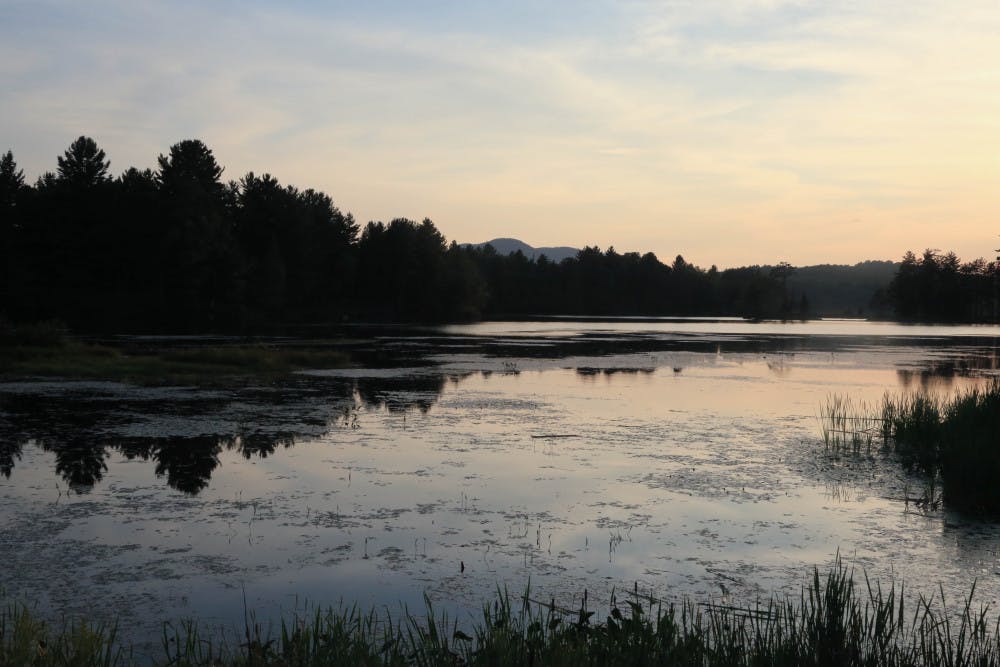If you drive along Interstate-75 in Gainesville, you will likely find a stormwater pond around every exit. In Florida, there are around 76,000.
A UF research group determined these stormwater ponds, which help manage water across the state, could harbor invasive species. According to a UF Institute of Food and Agricultural Sciences press release, the researchers investigated 30 ponds around the Gainesville area.
James Sinclair, a postdoctoral researcher in the IFAS School of Forest Resources and Conservation, led the research efforts and found 29 out of the 30 ponds studied contained at least one invasive plant. Some had up to eight different kinds of invasive plants.
The research revealed more than three-fourths of the plants were introduced as ornamental species, which are plants found in gardens and backyards, Sinclair said. Most of the plants were not planted in the ponds on purpose.
“Our best guess for now is that they’re actually colonizing from surrounding gardens, parks or plant nurseries,” Sinclair said.
Stormwater ponds are maintained in a variety of ways, Sinclair said. The ponds can be built to permanently hold water or drain after it rains.
The ponds studied in Gainesville were categorized into three levels of management: low-maintenance, medium-maintenance and high-maintenance. Low-maintenance ponds are never mowed, medium-maintenance ponds may be mowed occasionally and high-maintenance ponds are regularly mowed and manicured.
Pond management played a role in the level of invasion in the ponds, Sinclair said.
Carefully managed ponds, which may mean a combination of consistent mowing practices and removal of debris, excess vegetation, sediment and herbicides and pesticides, can reduce invasion, Sinclair said.
The team’s next step is to find a “happy medium” between using the ponds for water management while still adding biodiversity to areas without water habitats. This happy medium may not be achievable, Sinclair said.
Nicole Barbieri, a habitat naturalist for the city of Gainesville, said invasive plants can spread through water, air and humans.
“Everybody wants a beautiful plant from across the world but don’t realize that, in that native range, there’s something to control it,” she said.
When people put an invasive species in their backyard, it can take over their garden or landscape because there are no organisms there to keep it in check, Barbieri said.
Deah Lieurance, an assistant extension scientist with UF’s Agronomy Department, said invasive plants are expensive to manage and can impact our environment by getting in the way of our daily activities. For example, clogging a waterway can inhibit the traffic of boats for fishing or recreational activities.
Lieurance also said Florida consistently ranks in the top three states affected by invasive species.
"Florida takes turns with California and Hawaii, depending on if you’re measuring by expenditures or ecosystem effects," she said. "We just get annihilated by [invasive species]."
Basil Iannone, an assistant professor in the IFAS School of Forest Resources and Conservation who led the project, said the research is still ongoing and could guide future development and management of stormwater ponds.
He said there is a cost to the management of invasive plants in these ponds because it might make it more difficult for other plants and animals to grow and thrive there.
“We can maintain these things to look like those nice little ponds and golf courses and things like that and limit invasive plants from establishing,” Iannone said. “But it's also going to come at the expense of allowing other [organisms] to establish.”






